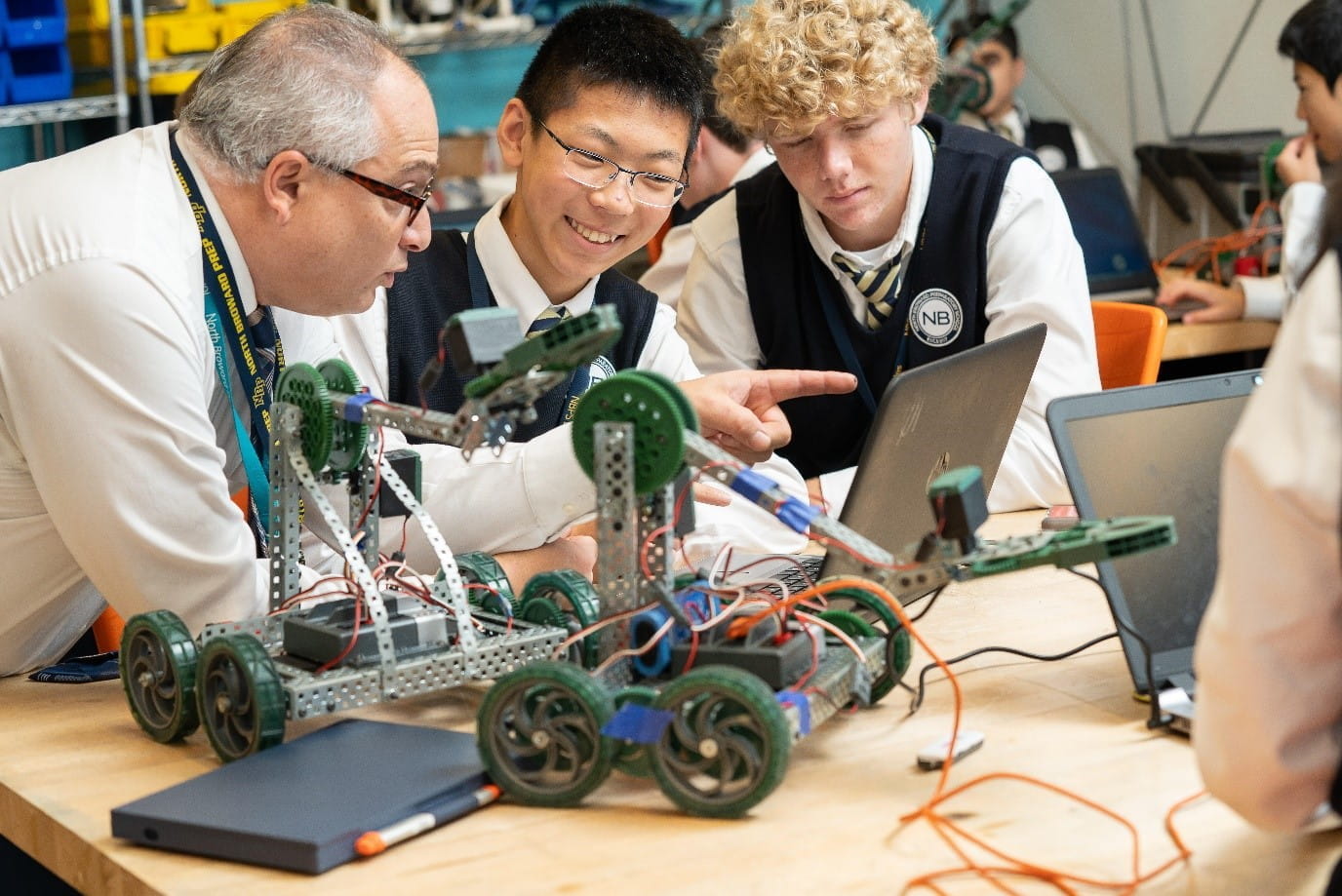We use cookies to improve your online experiences. To learn more and choose your cookies options, please refer to our cookie policy.

Successful individuals, communities, societies and entire civilizations are underpinned by the quality of their educational system. During their formative years, children might have a hard time seeing the bigger picture and understanding why their schooling years are some of the most important they will ever encounter. As a parent, it’s important you capture their enthusiasm for learning and ensure they maximise their education.
Here, we’ll reaffirm the wide range of benefits education provides to children, before offering advice on how parents can get involved and ensure their children are getting the best possible education.
If you find your child needs an extra slice of inspiration to get the maximum benefit from their education, take a look at the five of the reasons below and see if it helps create a spark from within.
Education isn’t just about learning a collection of facts and knowledge that can’t be applied to the real world. Good educational systems focus on moulding future members of society. When a child reaches adulthood, they should be armed with all the tools, characteristics, and knowledge they need to thrive in a world of opportunity.
Independence is a vital attribute for any person. This doesn’t just stop at knowing how to cook and get around town. Self-dependency includes learning how to deal with failure, how to manage certain emotions and how to deal with the difficult scenarios that life throws at you.
As they progress down their educational pathway, a teacher’s focus on developing these characteristics will grow.
At each stage of our lives, we have goals we want to achieve and targets we want to hit. The sense of pride in knowing you’ve worked to get where you want to be is rewarding and satisfying. Almost always, it requires one vital component - education.
Education provides us with the tools and mental characteristics required to excel in life. Whether your child wishes to be a pilot or scientist when they grow up, or they aim to open their own business when they hit adulthood, they’ll need to use all their educational years to make it possible.
Education unlocks vital skills like good decision making and interpersonal skills. They will need to draw up on them if they wish to make their dreams and ambitions become a reality.
Education, and the knowledge about the world that it provides you, provides a huge draw of confidence. A confident child is one that can benefit in many aspects of life. In education, they have the confidence to express themselves or ask for help or clarification if they need it. Confidence is a vital characteristic when working creativity in the arts or in a sporting environment.
A more educated child is one a more confident one, and that in turn only helps them in their educational pursuits.
Providing they hold onto that confidence into adulthood, it will continue to serve them well professionally and socially.
Education is one of the great levelers. No matter who you are, there is a whole world of knowledge to be absorbed. With it, anyone can grow into who they want to be and achieve what they want to achieve.
Given everyone the right educational opportunities, and they have a fair chance at acquiring new skills which make them employable and competent members of society. Education also benefits other aspects of life like health and wellness, meaning it truly forms the backbone of a fair society filled with thriving people.
Look around the world and you’ll find you’re surrounded by the benefits of educating children. From the cars we drive to work, the medicine we help to cure ourselves, and the phones we use to communicate – it’s all made possible by education. The emphasis our society places on critical thinking and innovation is realised in everything we touch today.
Just as we are now benefitting from greater transport access, healthier bodies, and improved communication systems, future generations will also benefit from the continued efforts to ensure as many children as possible get the education they need.
Alongside teachers, the most important figures in the educational progression of a child are their parents. Schooling is only one aspect of a child’s academic progress; parents can have a huge additional impact if they focus on the right areas. To make positive contributions to your child’s education, consider these four factors.
Everyday life is full of opportunities to help supplement your child’s education. That could involve simple adding up or multiplication when you’re in the supermarket or learning new vocabulary from the menu in a restaurant. They may only be small activities, but they can offer a refresher for many of the things your child is learning in school.
When it comes to homework, parents have a great opportunity to get directly involved in a child’s curriculum. Adopt the role of teacher and give your child the help and encouragement they need to complete the tasks they have been set. This is also a great opportunity to express a love for learning. Your attitude will be infectious to them.
If it’s sports or music your child is interested in, make sure you’re doing all you can to facilitate their growth in these areas. Encourage them to attend after-school clubs, then find them a local team or group where they can also participate outside of school hours. It could even be as little as grabbing the football out of the shed or dusting off your old guitar and joining in!

Reading is a powerful skill that feeds into many other aspects of academic growth. Even if it’s only for 20 minutes every other night, reading can play an important role in your efforts to help a child’s education. Not only will it expand a child’s vocabulary and allow them to express themselves more accurately, reading can also improve a child’s creativity and imagination – skills that will prove vital in the school environment.
Another major factor that could swing the educational output of your child is the choice of school. It’s a decision that can’t be taken lightly. As a parent, you need to put the time into assessing the available options. Making the right choice will put your child on a pathway to academic success. Here’s three tips for identifying the right school for your child.
Once you’ve identified a potential school, take as much time as you need to gather the information. Harness the vast resources available on the internet and leave no stone unturned.
You can start with the school’s website. Have a browse around their promotional material. How do they talk about the culture and priorities of the school? Does it align with the sort of school you’d like your child to attend? From safety to teaching philosophy, be sure to seek answers to any questions you might have.
Take a look at the school’s curriculum, additional programmes (such as the International Baccalaureate), and extracurricular activities like sports or arts programmes.
If you feel like the school ticks all these boxes, you should then look to seek some additional information away from their website. See if you can find any parents (locally or online) who currently have children at the school, and quiz them on their thoughts. Elsewhere, there are dedicated sites such as greatschools.org where parents can post reviews of the school and give it a score out of five.
Questions to ask yourself
Throughout your endeavors to find out more about a school, keep the needs of your child at the forefront of your mind. They will ultimately be the ones experiencing the school; their happiness will underpin their ability to thrive.
You know your child better than anyone, so match up the research you’ve just conducted with the style of education you think would suit your child the best. Does that school’s teaching philosophy match with how your child learns? Do they require more one-to-one attention, thus making smaller class sizes a priority? Do they excel at a particular sport or creative art? If so, a school with a track record of harnessing talent in that field may be a deciding factor.
Questions to ask yourself
If you match your child’s needs with the right school, it might be time to pay them a visit. Schools will run open days for exactly this purpose throughout the year. This is your chance to experience a school day at first hand, so use this opportunity to get as much insight as possible on the facilities.
From maths class to lunchtime, try and immerse yourself in the school and soak up the culture. There is really no better way to analyse a school’s credentials than seeing it for yourself. Be sure to talk to teachers and if possible, the headteacher.
Questions to ask yourself
A quality education and academic success are significant factors in leading a happy and fulfilled life. As a parent, it’s your job to express the joys of learning to them and seize on every opportunity to contribute to success. With Nord Anglia Education, you can work with us to ensure your child reaches their full potential. Find your nearest school here.
Want more of the latest insights into education? Read our INSIGHTS publication here!